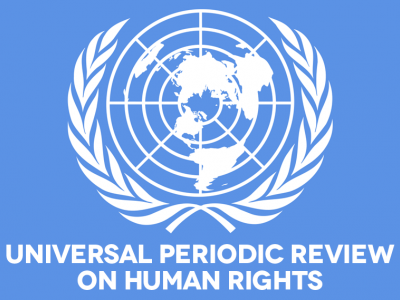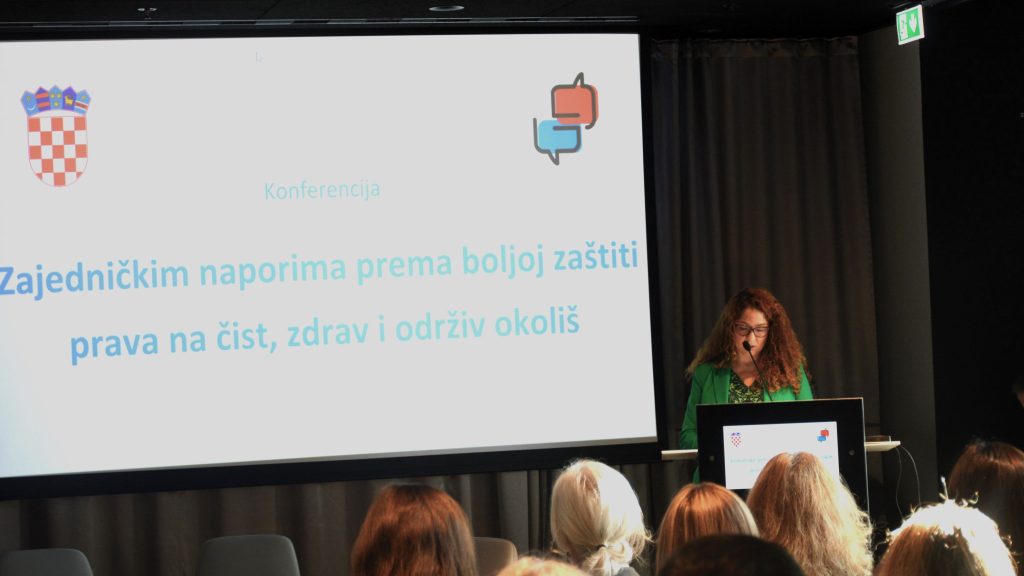The conference titled “Recommendations of International Bodies for the Protection of Human Rights – Implementation in Croatia” was held on October 6, 2023, organized by the House of Human Rights. The event was attended by the Ombudswoman Tena Šimonović Einwalter and Deputy Ombudswoman Dijana Kesonja.
The topic of the event, which gathered a large number of stakeholders from state administration bodies, civil society organizations, and independent institutions, was the implementation of recommendations addressed to the Republic of Croatia as part of the UN Universal Periodic Review (UPR) of human rights. The discussion also covered the implementation of recommendations from international human rights bodies related to combating hate speech.
Highlighting that this year marks the 75th anniversary of the adoption of the Universal Declaration of Human Rights, as well as the 30th anniversary of the Vienna Conference on Human Rights and the adoption of the Vienna Declaration and Programme of Action, Ombudswoman Šimonović Einwalter emphasized in the first panel that challenges in human rights protection are increasing and becoming more complex, often global in nature. She noted the growing complexity of the reporting system but also, unfortunately, the degradation of states’ sense of responsibility toward their international obligations.
Ombudswoman Šimonović Einwalter explained that in the reporting process to international mechanisms, the Ombudsman institution plays a multifaceted role as a “bridge” — between national and international human rights promotion and protection systems, between various national actors (the Government of the Republic of Croatia, the Croatian Parliament, state administration bodies, civil society organizations, and others). Since the Ombudsman also receives complaints — unlike some other National Human Rights Institutions (NHRIs) in Europe — it uniquely incorporates the voice of citizens into these processes.
The Ombudswoman also welcomed the practice of joint reporting, which has been globally recognized as a good practice example because it provides a quality overview of what has been achieved so far. She stressed the importance of creating synergies between human rights protection and promotion systems at international, national, regional, and local levels. Finally, from the perspective of their mandates and work, the Ombudswoman gave an overview of the implementation of UPR recommendations in several areas, such as the judiciary, asylum and migration, rights of national minorities, and others, as well as areas and elements where implementation needs to be improved.
During the second panel, dedicated to analyzing the implementation of international recommendations related to hate speech, Deputy Ombudswoman Dijana Kesonja spoke from the perspective of their work, highlighting challenges in distinguishing freedom of expression, unacceptable speech, and hate speech. She noted that unacceptable speech in the Croatian public sphere is often motivated by current events and, as in previous years, appeared in various forms during 2022 — in physical spaces, in comment sections under articles on electronic publications, and on social media. Social media, in particular, is a space where young people often encounter unacceptable speech, as confirmed by research conducted by the Ombudsman in 2019, which underlined the importance of education and upbringing on human rights from the earliest age. However, broader education for the general and professional public is also essential, Deputy Kesonja concluded.
Since the establishment of the UPR mechanism in 2006, three cycles have been completed, with the fourth currently underway. In the third cycle, in November 2020, the state of human rights in Croatia was on the agenda. Our country received 224 recommendations, of which it accepted 194, while the remaining 30, relating to migrants, refugees, and asylum seekers, were noted.
The recommendations cover a range of areas — fulfilling Croatia’s international obligations, improving the legislative and institutional framework for human rights protection, functioning of the judiciary, protection and promotion of freedom of expression and media freedom, combating discrimination and hate speech, rights of national minorities, workers’ rights, transitional justice, and climate change. Therefore, it is important to include them in the content of action plans for the protection and promotion of human rights and combating discrimination for the period 2024–2025, which are currently in the drafting phase.





